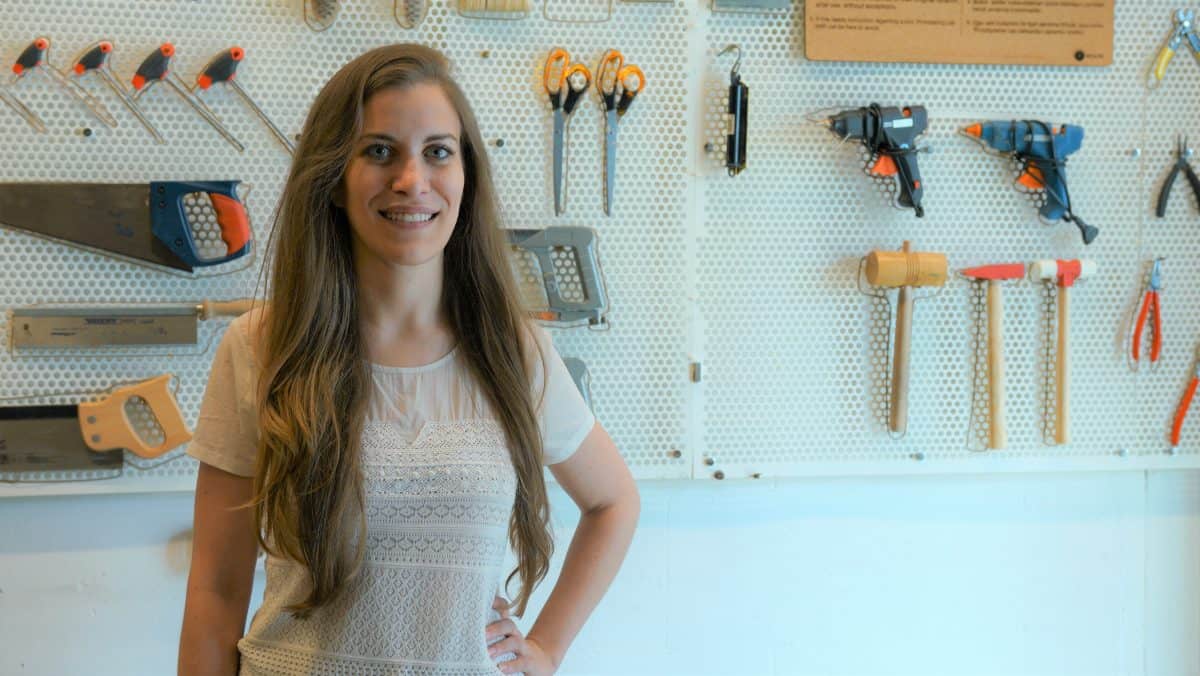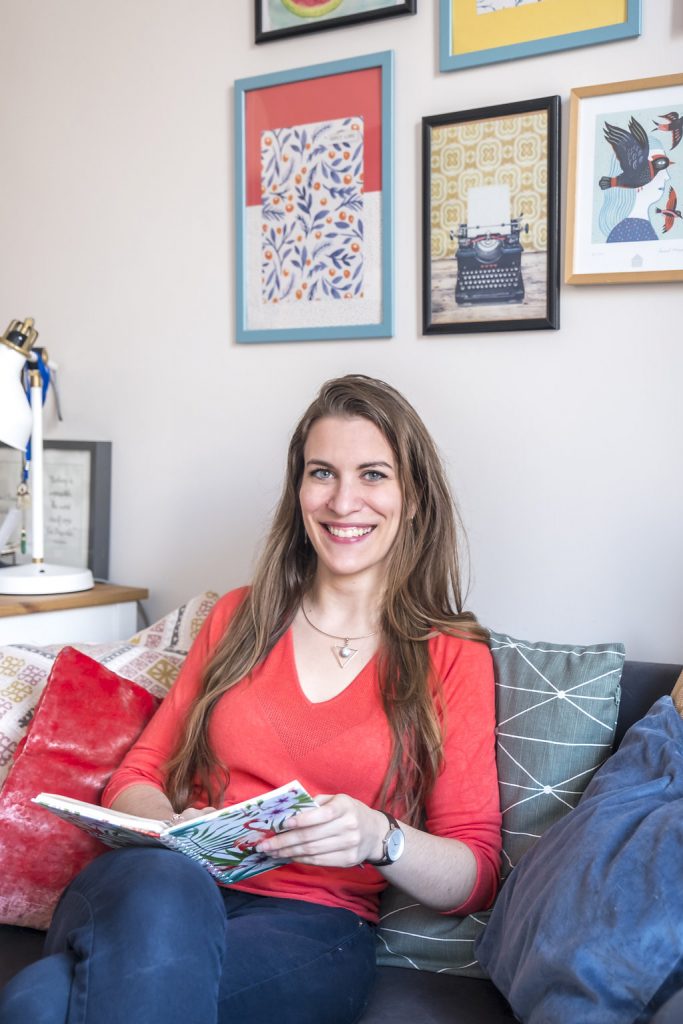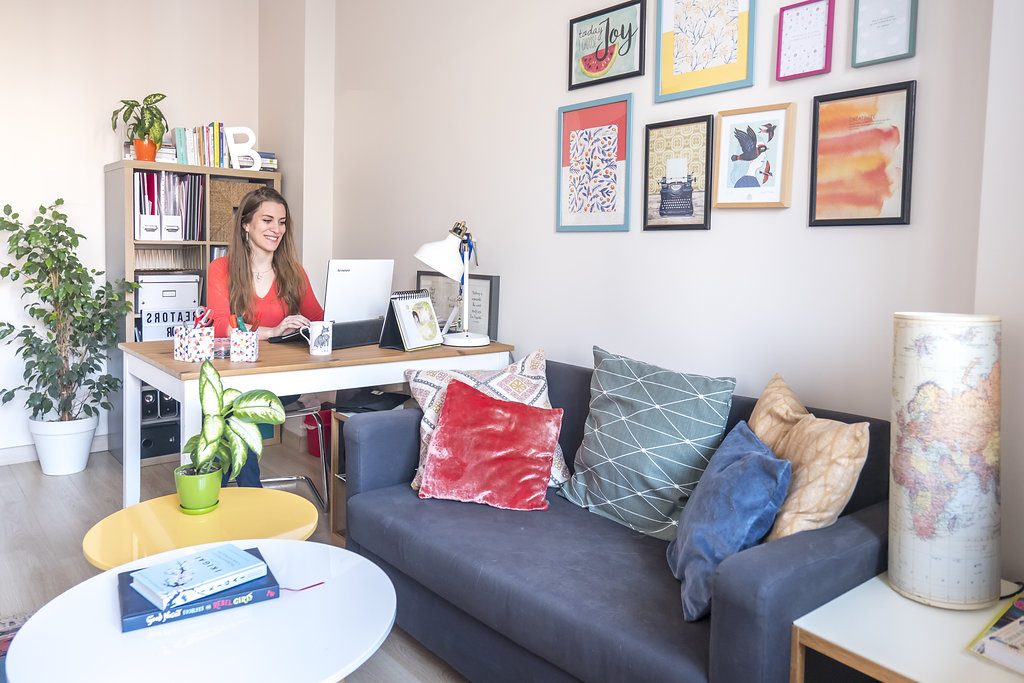A prevalent outlook on entrepreneurship is that in our modern profit-driven marketplace, there’s little opportunity for ethical and social minded projects to take root and simultaneously achieve financial success. Thankfully, to quickly dispel such notions, we need look no further than Solène Pignet, who not only embodies the very real potential of doing so through her own story of conscientious business prosperity, but has also made it her mission to help thousands of people across the world believe in their own capacity for building a life on making change. Through Creators for Good, Solène makes full use of her passion for strategy by helping impact-conscious small businesses and aspiring entrepreneurs get off the ground and create a sustainable plan for their future. In the natural evolution of her project, she has also co-founded Changemakers Association (itself an organic extension of another Solène co-endeavor: Changemakers Lab), offering a platform for like-minded ‘changemakers’ to come together, exchange ideas, collaborate, and ultimately better our world. As Creators for Good continues to grow, she’s managed to find the time to co-author a book, launch the foundation of an interview series, and plans to push the Changemakers initiative in some inspiring directions.
We took some time to speak with Solène on her motivations to leave corporate life and dive headfirst into her own sustainable development project, the practicality of ethical entrepreneurship, the global opportunities for changemakers to connect and make a difference, challenges and myths that persist in the field, and what’s next on the horizon for this social innovator.

Could you tell us a little bit about yourself and your background? What brought you to Istanbul?
Sure. My name is Solène, I’m thirty years old and I’m French. It has been seven or eight years since I left France. After I graduated, I found a job opportunity abroad, and thought it would be awesome to do that for two or three years and come back with a nice resume. Now eight years later, I still haven’t moved back.
I studied sustainable development in business school with the ambition to change the system from the inside of big companies. I started my career in an international macroeconomic research company. I was changing countries every six months, so I’ve lived in South Africa, Indonesia, Russia, Nigeria, and Turkey. This is how I first landed in Istanbul. I had never really thought about living here, but I totally fell in love with Istanbul and Turkey. So during this first six months in 2012, I also met someone and now we’re getting married at the end of the year.
What has your professional focus been since moving to Istanbul?
So as I mentioned, in the beginning I came for my job. On my second mission here, like a year after, I did a small burnout. I decided to step back from the corporate world. I found myself wanting to continue living in Istanbul but not work for a corporation. I wanted to work on sustainability again as it had been my professional passion and I had put it on the side in order to focus on my career and pay back my student loans. So at that point I decided to quit my job and start my own business. I had paid back my loans, and it seemed like a now or never opportunity, as I don’t have kids and could take the risk. I find that if I were in France I might not have started a business, but in Turkey there’s an entrepreneurial spirit – at least in my circles – and it pushed me to be bold. If I can live in many different countries, maybe I could start my own business.
Could you elaborate a bit on Creators for Good?
Sure. As you now know, I wanted to work in sustainable development but not for big corporations. I always knew strategy was my strong suit, or at least where I feel most comfortable. I decided to become a strategist for small business owners and people who are starting businesses in the field of sustainable development. Basically, entrepreneurs who want to have a positive impact on the world through their business. Some of them might work on zero waste initiatives, women empowerment, sustainable travel, and so forth. It’s very broad, but that’s what I really like. With every client the methodology might be the same, but I still get to explore something different. I help with business models, setting up their foundations, finding their first few clients, and this sort of thing.

Who is your typical target client? Are they mostly local or international?
My audience is most definitely global. They tend to be located in Europe or North America. I have some clients as well in Australia and New Zealand. I have a couple of clients in Turkey, but they’re foreigners. It’s not necessarily intentional, but I do work in English and French. I get my clients from people who come through my website. I am not the type who knocks on doors or does cold calling. I trained for developing a marketing strategy that would allow me to have people come to me from wherever they are. I think the fact that they’re mostly Westerners is just that they recognize themselves in my journey. Maybe they’re in their 30s or 40s and they reassess what they’re doing with their lives. They want to do something of their own and have it have a positive impact and can still provide a living. This brings them to the idea of social entrepreneurship. In doing so, they can feel a bit lost in terms of what to do to set up their business as financially sustainable and positively impactful. This is where I come in.
What is your typical day to day in the role? What brought you to ATÖLYE and how does it fit into your objectives?
So I started my business alone, and still work by myself on a day-to-day basis. It gives me energy and how I find myself the most effective. The business has grown exponentially and so I now have a team of four working with me, but not full time. They are freelancers, based in different countries, and so everyone is quite independent – which I love. I have my own home office now. I used to work from my living room back when I was in Cihangir and then I upgraded last year and moved to Bomonti, to a place that has enough space for an office with… a door. [Laughter.]
So while I find myself efficient when alone, I also crave having a community of like-minded people. I’ve worked in different co-working spaces around Istanbul and when I moved to Bomonti, I decided to join ATÖLYE. It wasn’t only because it’s conveniently located for me, but also because I love the spirit of this space. It’s not just a co-working space, because I could always just work efficiently at home. It’s really about being surrounded with like-minded people and having access to different types of events that can broaden your horizons and impulse some creativity. Entrepreneurship can be quite lonely and you find yourself in your routine which has ups and downs. Having a community freshening your mind with diverse things and input is amazing and that’s why I am happy to be part of this community.
You have a second project going on which is thematically similar, Changemakers Association. Could you tell us a little bit about that?
So Creatives for Good is individual one on one consulting services. For Changemakers Association, I actually started it with a Canadian colleague of mine, online. She is doing a similar service business as me in Canada. We became friends over things like “Do you also face these issues?” or “Do your clients also do that?”. We shared similar values as well as ups and downs and just became business friends from across the world. After a while, we started collaborating in a very lean way on some projects, like a one hour Q&A online with our community. We invited everyone we knew and in the end, they were super enthusiastic. They were asking about continuing the conversations together, so the next day we started a Facebook group, Changemakers Lab. Now it has just under 2,000 members worldwide. It’s really designed for social entrepreneurs who want to share their journey with peers all over the globe. Out of this community, we started to see some needs that we wanted to address. So we started a Changemakers Association membership. It’s a project we’ve run for two years that we just closed in June. The growth wasn’t sustainable for us, since we have our own full time businesses. We’re actually transitioning that, and bringing in new partners to have an impact with our community in a way that’s going to be more efficient and doable.
Could you tell us a bit about your book Meeting of The Minds : The Social Entrepreneur’s Roadmap for Collaborations that Work?
I actually started it with my partner from Changemakers Association, Danielle, right before launching that business with her. We had the Facebook community and people were constantly asking how to make it work, how to collaborate from across the world, how to find a partner, etc. We were replying one by one through e-mail to the same messages. So we decided to write an ebook about it. We started writing and writing. We also began interviewing other people to get their input as well. We came up with a framework, then fell into the research trap, and the ebook became a few hundred pages long. It wasn’t material for an email anymore and it’s really easy to self-publish a book now with Amazon. So we self-published that ebook. It’s very DIY, so if anyone reads it, please don’t blame us for the poor design. [Laughter.] The content though is really there. We didn’t create it to make money, we created it to cover the topics all these people were asking about, and now it’s helping changemakers all around the world to collaborate better.
What are some of the challenges inherent to your work?
I suppose the biggest challenge, was when I grew up in France, I was never told about entrepreneurship. I knew about it, but for me it was for old men who had a lot of money and a brilliant, innovative idea. So when I started my own business, I was never really prepared for that because I learned all my life to be a good employee, follow the rules, and keep my head down. So when you go off the beaten path and set your own rules and structure, it’s a lot of freedom and a lot of responsibilities as well. It comes with a lot of ups and downs. I might be so happy to be free, but also could wonder what I’m doing and if it is ever going to work.

When it comes to social entrepreneurship, one of the big questions was if it would work financially. I didn’t have much savings. I was 26 years old, living alone, paying rent, and had a fridge to fill. The number one question people would ask is how I am going to make money. It’s so funny now looking back. It has been four years and because I am doing what I love and what I am great at – I’m not afraid to say it, I love what I do and the people I work with – It’s going really well. I use my zone of genius which is strategy. I’m constantly booked out and earn more money than at my corporate job. Those fears have kind of vanished now and I’m so happy I was in Turkey in and decided to take this risk to do what I love, for a good cause, and with people I both admire and love working with. It’s not harder to do something you love, but you’ve been told that all your life it’s impossible to make a good living from it. Blending the two is so fulfilling and it can really work. It’s not easy at first, but once you find what works, and you do it over and over again, after a while it’s just rolling.
Any ambitions for the year ahead that you’d like to share?
Sure. One of my current new projects/ambitions, which I’m doing under Creators for Good, is to launch an interview series with social and ethical entrepreneurs who are making a good living doing something good. The reason I want to do this is because I realized the number one reason people don’t launch social businesses, is the fear of not earning enough of an income. They feel like if there is a positive impact, they are going to have to cut down on their personal income, freedom, or quality of life. Again, because I have realized doing it that it isn’t the case, now I want everyone to know. I might have my example to share, but I want dozens or hundreds of examples of people who took the leap, had it work for them, and made it happen. I want to change the mindset that having an impact needs to be done the charitable way. You can have a business that you love doing and is profitable, while also making a positive impact. If everyone who has that ambition actually follows through and makes it happen, we can collectively change the world.
As we’re an advice publication for foreigners living in Istanbul, any lesser known places or tips that you’d like to share with our readers?
I would advise having breakfast at the organic market here in Bomonti. It’s not the traditional kahvaltı you get around the city. It’s local producers, with a couple of women preparing the gözleme right in front of you. There’s fresh organic fruit juice pressed on demand while you sit at a little table. The more people that go and raise the demand for organic products, the bigger the offer will grow. It’s every Saturday, with the place also becoming a flea market on Sundays.
To keep up with Solène and her work, be sure to visit the official page for Creators for Good. If interested, you can apply to her interview series Good Living Making an Impact. Also be sure and check out the official page for Changemakers Association, as well as the Facebook group Changemakers Lab.
ATÖLYE Spotlight is our series on the inspiring community members of Istanbul’s most creative space.
All images courtesy of the interviewee.









